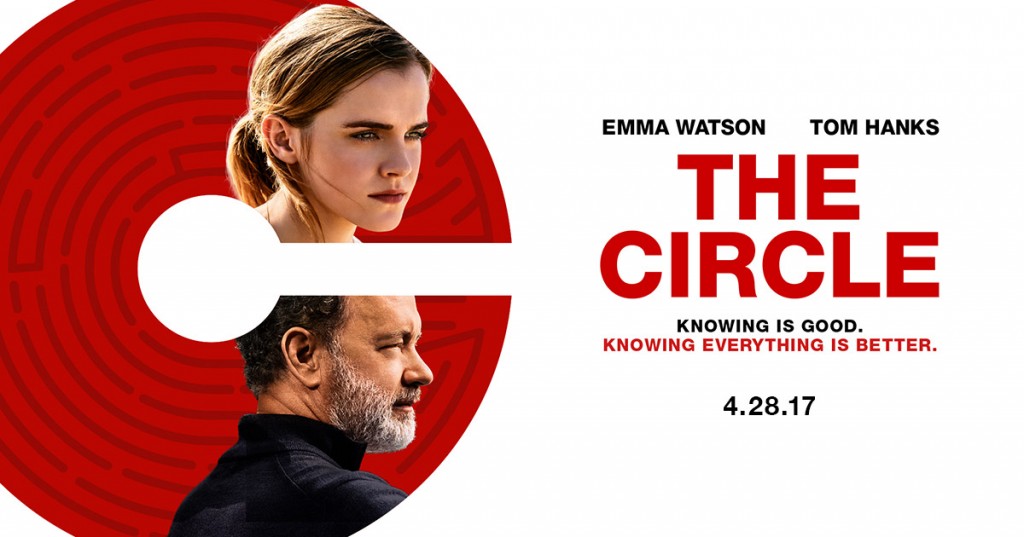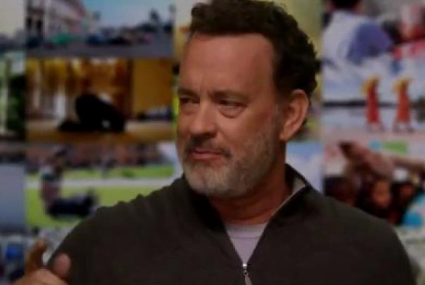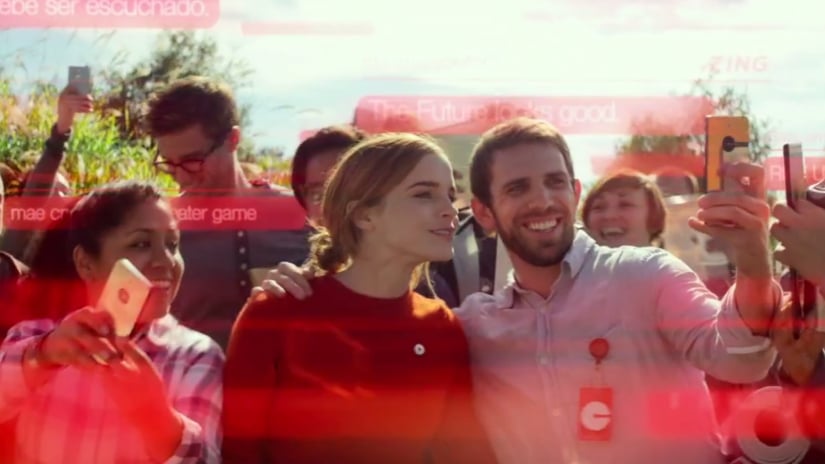
There’s a really great film to be made about the journey we as a society are taking from private lives to a more digital, more public life where “information wants to be free” and we laud people like Julian Assange as cultural heroes for exposing the secrets of government agencies. Unfortunately, ‘The Circle’ is not that film.
 Ostensibly based on the hero’s journey of Mae (Emma Watson), a young, blue collar Northern Californian worker, the film seeks to expose the dangers inherent in our ever-more-connected world. She gets a job at a massive startup that’s an amalgamation of Facebook, Google, and Apple, run by the charismatic Bailey (Tom Hanks). The goal of The Circle is to have everyone connected, all the time. No secrets, no hiding, no privacy because “privacy is lies” and “knowing is good. Knowing everything is better.”
Ostensibly based on the hero’s journey of Mae (Emma Watson), a young, blue collar Northern Californian worker, the film seeks to expose the dangers inherent in our ever-more-connected world. She gets a job at a massive startup that’s an amalgamation of Facebook, Google, and Apple, run by the charismatic Bailey (Tom Hanks). The goal of The Circle is to have everyone connected, all the time. No secrets, no hiding, no privacy because “privacy is lies” and “knowing is good. Knowing everything is better.”
Mae’s father Vinnie (Bill Paxton) suffers from multiple sclerosis, something that pulls her away from the optional weekend activities at The Circle. That’s a problem, as her perky fellow “circlers” tell her after just a few days at work. True circlers are part of the community, which is why the corporate campus has a nightclub, gym, laundry facility and dorms for employees. Meanwhile, Mae’s old buddy Mercer (Ellar Coltrane) tells her that it’s unhealthy to be always on and pulls himself off the grid after her earnest attempt to share his antler chandeliers backfires.
Mae opts for radical transparency and live broadcasts herself 24×7 for a few months, garnering millions of followers. This concept was better explored in both ‘EDTv’ and, more especially, ‘The Truman Show,’ but Mae finds she enjoys the exhibitionistic experience of having millions of people track her every move. She’s important! Until, quite predictably, something bad happens.
 This is where the story really falls apart. Mae’s crisis of confidence, fueled by her sporadic conversations with The Circle co-inventor Ty (John Boyega) who has become quite disillusioned about what’s happened to his original vision, should be a turning point in the story, a chance for her to expose the secret machinations of both CEO Bailey and COO sidekick Stenton (Patton Oswalt). But it’s not.
This is where the story really falls apart. Mae’s crisis of confidence, fueled by her sporadic conversations with The Circle co-inventor Ty (John Boyega) who has become quite disillusioned about what’s happened to his original vision, should be a turning point in the story, a chance for her to expose the secret machinations of both CEO Bailey and COO sidekick Stenton (Patton Oswalt). But it’s not.
In fact, the film wraps up with an ending that’s not only improbable but completely inconsistent with what motivates Mae and, by extension, the viewer too. Reign in the madness, seek to find a balance between privacy and public sharing, let people opt in or out, but that’s not the message of the film ‘The Circle,’ and as a result, the ending will leave you feeling quite deflated. All that great build-up for… not very much at all, really.
There’s a bigger problem with the film; there are too many half-baked stories. It’s clear about half-way through that the film is based on a work of juvenile fiction, a “teen lit” book by author Dave Eggers. Perhaps a 16yo would find it all compelling, but there’s no logic to the narrative journey, the protagonist’s choices are inconsistent and quite honestly baffling as the film proceeds, and ultimately the final scene flies in the face of the message we, the audience, are given in the last third of the movie. Darn confusing, that.
From a production perspective, ‘The Circle’ is reminiscent of the dumb comedy ‘The Internship,’ where it too explores the positive and negative of work as your entire life and community. At least ‘The Internship’ had a light touch and sense of humor about the topic, examining things like the inherent ageism of a company where everyone but the CEO is in their 20s, seemingly no-one has children and all are slim, healthy and fully able. Not much diversity at The Circle. Or is that just Hollywood?

Once Mae starts live streaming her life, we see pop-up messages for almost the remainder of the film, comments from “viewers” of her stream, in various languages. They’re quite benign and supportive, far more so than real life would suggest with an audience of millions globally. Still, it’s an interesting cinematic technique, even if it’s already been done in other films like ‘Texted’ and ‘Unfriended.’ There was much potential in these pop-up sotto voce comments to add a wry, snarky commentary that would break the fourth wall, but that wasn’t utilized.
And that’s really the experience of watching ‘The Circle’: missed opportunities. There’s a much better story waiting to be told, and a considerably more satisfying ending waiting to make it onto the big screen. There’s a far more interesting story about Ty Gospodinov, the original inventor of The Circle who is now pushed out of the company but has returned under cover (how if they have some fantastic facial and biometric recognition systems?) just to see his vision horribly corrupted by Bailey in a bid to, what, control the world?
